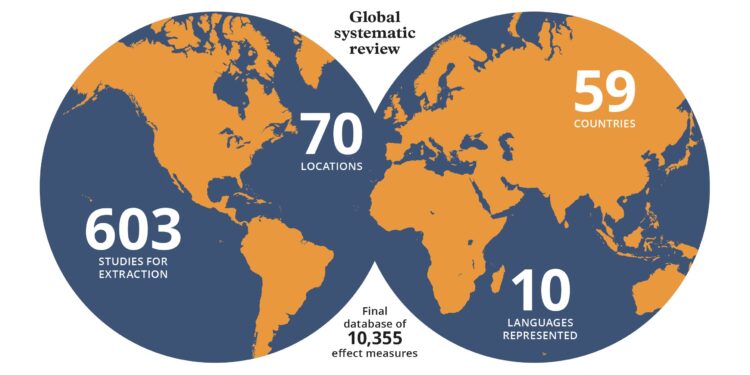“Effects of education on adult mortality: global systematic review and meta-analysis” (Lancet Public Health, 2024) provides the most comprehensive evidence to date of the reduction in all-cause mortality associated with each year of schooling. The study was conducted by the Center for Global Health Inequalities Research (CHAIN), in collaboration with the Institute for Health Metrics and Evaluation (IHME). Credit: eurohealthnet.eu
Education saves lives, regardless of age, gender, location, social and demographic background. This is what the latest and largest study of its kind published in Lancet Public Health
Researchers have known that those who achieve higher levels of education live longer than others, but until now they did not know to what extent. They found that the risk of death decreased by 2% with each additional year of education. This means that those who completed six years of primary school had a 13% lower risk of death on average. After graduating from high school, the risk of dying was reduced by almost 25%, and 18 years of education reduced the risk by 34%.
The researchers also compared the effects of education to other risk factors such as a healthy diet, smoking and excessive alcohol consumption, and found that the health outcomes were similar. For example, the benefit of 18 years of education can be compared to eating the ideal amount of vegetables, rather than not eating vegetables at all. Not going to school is as bad for you as drinking five or more drinks a day or smoking ten cigarettes a day for 10 years.
“Education is important in itself, not only because of its health benefits, but now being able to quantify the magnitude of these benefits is a major breakthrough,” said co-author Dr Terje Andreas Eikemo and Director of the Center for Global Health Inequalities Research (CHAIN) at the Norwegian University of Science and Technology (NTNU).
If the benefits of education are greater for young people, those over 50, or even 70, still benefit from the protective effects of education.
Compared with zero years of schooling, completing six years of schooling (around primary school level in most areas) was associated with a 13.1% reduction in risk of all-cause mortality, once controlled for age, sex and marital status. This value increased to 24.5% after 12 years and to 34.3% after 18 years of study. This translates to an average reduction of 1.9% per year of education over 18 years. Credit: eurohealthnet.eu
The researchers found no significant differences in the effects of education between countries at different stages of development. This means that more years of education are just as effective in rich countries as in poor countries.
“We need to increase social investments to enable access to better and broader education around the world to end persistent inequalities that cost lives,” said Mirza Balaj, co-lead author and postdoctoral researcher at the department in sociology and political science from NTNU. “More education leads to better employment and higher incomes, better access to health care and helps us take care of our own health. Highly educated people also tend to develop a broader set of social and psychological resources that contribute to their health and longevity. of their life. »
“Closing the education gap means closing the mortality gap, and we must interrupt the cycle of poverty and preventable deaths with the help of international commitment,” said Claire Henson, co-lead author and researcher at the Institute for Health Metrics and Evaluation (IHME). ) at the University of Washington School of Medicine. “In order to reduce mortality inequalities, it is important to invest in areas that promote educational opportunities. This can have a positive effect on population health in all countries.”
The study identified data from 59 countries and included more than 10,000 data points collected from more than 600 published articles. Most of the studies reviewed for this study were from high-income countries, highlighting the need for more research in low- and middle-income countries, particularly in sub-Saharan and North Africa, where data is rare.
“We should now focus on areas of the world where we know access to schooling is low and where research on education as a determinant of health is also limited,” said Dr Emmanuela Gakidou , co-author and professor at IHME.
More information:
Effects of education on adult mortality: a global systematic review and meta-analysis, Lancet Public Health (2024). DOI: 10.1016/S2468-2667(23)00306-7
Provided by Norwegian University of Science and Technology
Quote: Learning for life: the higher the level of education, the lower the risk of dying (January 23, 2024) retrieved on January 24, 2024 from
This document is subject to copyright. Apart from fair use for private study or research purposes, no part may be reproduced without written permission. The content is provided for information only.



